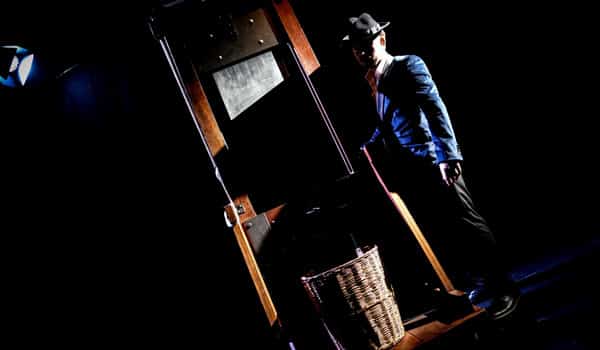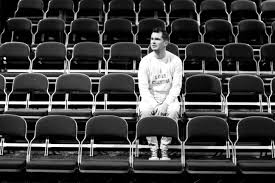Find the original article here.
Alcohol and the British public get on like a particularly sozzled house on fire, but why keep the melodrama of one too many until the end of the night? Contemporary performance company Drunken Chorus (Chris Williams and Sheena Holliday) know that no good things come in moderation, which is why they’ve returned with their third instalment of Drunken Nights – a series of live performance nights set in, you guessed it, UK pubs.
Nearing the end of its programme of events taking place both at the George Tavern in London and the Wagon and Horses in Lancaster, the project has already showcased some intriguing spectacles. Each artist – handpicked by both Williams and Holliday from numerous entries – is given ten minutes in the pub to do whatever they want. Crucially, this isn’t pub theatre scrunched up into a corner or hidden away in a dank upstairs alcove. Instead, each night the premises are taken over by the performers – much to the surprise of some unsuspecting walk-ins just looking for a quiet pint.
So far the nights haven’t as much tipsily stumbled over the line of madness as stampeded across it, braying and toothlessly hammered up to the eyeballs. Giant shrimps and disco freestyle dance-offs have been just some of the acts on show, and with one night still to come at the George Tavern even trying to expect the unexpected is going to be difficult.
One of the artists performing at the George is Pablo Pakula, Co-director of performance company Accidental Collective. For his slot at the George Tavern, Pakula will be adapting previous elements of his work-in-progress piece based around masculinity: “Masculine Expressions of My Creative Prowess”. “The pub is a quintessential male landscape and I was drawn to the idea of drinking as a moment of joy and celebration, but equally drinking as a lonely, bitter activity with a shot of whiskey by the bar,” explains Pablo. “So adapting my previous arrangements to the space at Drunken Nights was something I was really interested in doing.”
Whilst providing a night of unexpected theatre and off-beat comedy for free then, the event’s main aim isn’t just to entertain the punters, but to also help develop new and emerging talent just like Pablo.
“We looked at other nights that were happening in pubs and there were opportunities to go out and perform, but you maybe wouldn’t get paid or there maybe wouldn’t be much that you could get out of it,” explains the event’s Artistic Director Chris Williams. “So we wanted to create an event for pubs where artists get the opportunity for support and feedback too.” This means that at both of this year’s pub venues each of the live artists performing will be competing to receive a career-changing package of development support from established artists – and even residencies at Rich Mix in Bethnal Green and Live at LICA in Lancaster in early 2015.
For artists on the bill like Pablo, Drunken Nights is therefore a fantastic opportunity to showcase work to the professionals, and so quite rightly, “everyone participating is hoping that they will be selected for the next stage of mentoring.” “The fact that this isn’t just a one-off night – of which there are many already – is unique,” continues Pablo, “and to actually have the opportunity to have your work programmed in such a space is one I’m very glad to be a part of.”
In the future such opportunities might not just be limited to Lancaster and London too. As Williams explains, ideally over the coming years Drunken Chorus will seek extra venues in different cities to add to the programme, to “build up a network of venues and spaces.” So, with a plethora of pubs across the country, there’s plenty of scope to bring big breaks to a whole host of fresh UK talent – and big belly laughs to punters and pub landlords alike.







